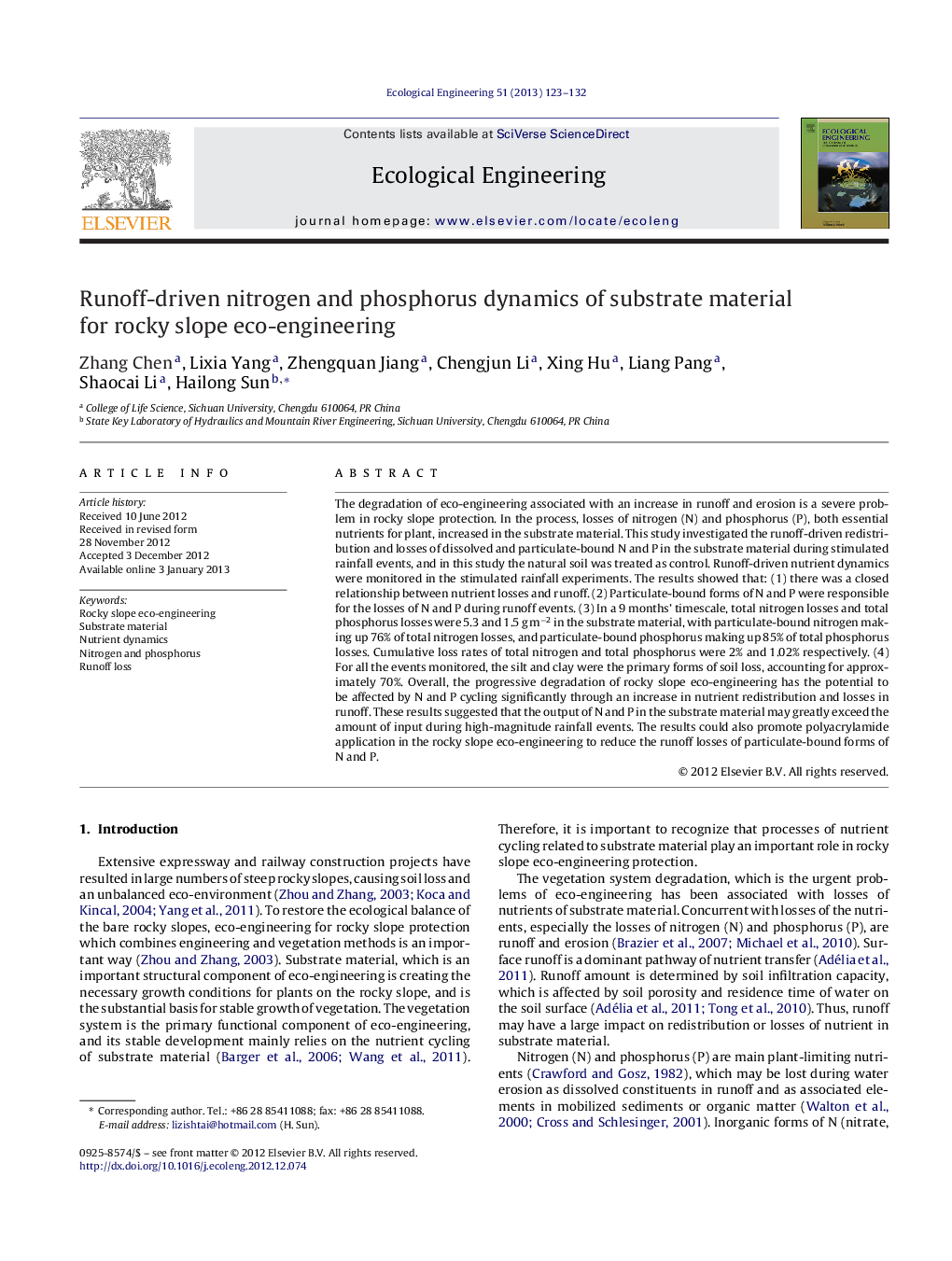| Article ID | Journal | Published Year | Pages | File Type |
|---|---|---|---|---|
| 4389836 | Ecological Engineering | 2013 | 10 Pages |
The degradation of eco-engineering associated with an increase in runoff and erosion is a severe problem in rocky slope protection. In the process, losses of nitrogen (N) and phosphorus (P), both essential nutrients for plant, increased in the substrate material. This study investigated the runoff-driven redistribution and losses of dissolved and particulate-bound N and P in the substrate material during stimulated rainfall events, and in this study the natural soil was treated as control. Runoff-driven nutrient dynamics were monitored in the stimulated rainfall experiments. The results showed that: (1) there was a closed relationship between nutrient losses and runoff. (2) Particulate-bound forms of N and P were responsible for the losses of N and P during runoff events. (3) In a 9 months’ timescale, total nitrogen losses and total phosphorus losses were 5.3 and 1.5 g m−2 in the substrate material, with particulate-bound nitrogen making up 76% of total nitrogen losses, and particulate-bound phosphorus making up 85% of total phosphorus losses. Cumulative loss rates of total nitrogen and total phosphorus were 2% and 1.02% respectively. (4) For all the events monitored, the silt and clay were the primary forms of soil loss, accounting for approximately 70%. Overall, the progressive degradation of rocky slope eco-engineering has the potential to be affected by N and P cycling significantly through an increase in nutrient redistribution and losses in runoff. These results suggested that the output of N and P in the substrate material may greatly exceed the amount of input during high-magnitude rainfall events. The results could also promote polyacrylamide application in the rocky slope eco-engineering to reduce the runoff losses of particulate-bound forms of N and P.
